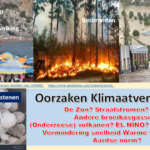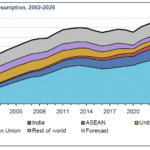SAfrica hosts developing countries on climate talk
By DONNA BRYSON (AP) – 9 hours ago
JOHANNESBURG — As the world struggles to break a deadlock in climate change negotiations, South Africa and three other influential developing nations are gathering for a strategy session to ensure poor countries are heard.
Brazil, South Africa, India and China began to coalesce as a bloc at U.N. climate talks in December in Copenhagen. The group, known as BASIC, plans a high-level meeting Sunday and Monday in Cape Town.
The size of their economies means India and China can’t be ignored, and South Africa and Brazil are good partners because of the standing they enjoy in their respective regions.
“BASIC is an important group,” said Sunita Narain of the Center for Science and Environment, an independent Indian think tank. “But only if it is willing to be the voice of the voiceless.”
Copenhagen ended with an agreement forged by the BASIC countries, the EU and the U.S. calling for reducing emissions to keep temperatures from rising more than 2 C (3.6 F) above pre-industrial levels. The nonbinding agreement also calls on rich nations to spend billions to help poor nations develop clean energy and deal with drought and other impacts of climate change.
The Copenhagen negotiators had barely packed their bags before they began to hear sharp criticism of the compromise — even from those who had helped draft it. South Africa said Copenhagen’s failure to produce a legally binding agreement was unacceptable. Several nations complained that the industrialized world should have committed to deeper cuts in the emissions of the greenhouse gases blamed for global warming.
Follow-up talks in Germany earlier this month only underlined divisions, particularly a gulf between developing nations and the industrialized world. The poor countries demand that those that grew rich off polluting industries pay to help developing nations buy clean technology and cope with the droughts, floods and other disruptions associated with global warming. Developing nations also say they cannot be denied polluting technologies, such as a a coal-fired power plant for which South Africa just received a World Bank loan despite opposition from the United States and environmental groups.
Delegates left Bonn warning there was little chance of an agreement coming out of a crucial meeting in Cancun, Mexico at the end of the year. Cancun is supposed to produce a successor to the 1997 Kyoto Protocol, whose provisions capping greenhouse gas emissions by industrial countries expire in 2012.
In some ways, BASIC is an unlikely alliance. India and China, the world’s most populous developing nations, have long been economic and political rivals. A border dispute sparked a war between the two in 1962.
South Africa and India, meanwhile, have each proposed candidates to direct the Framework Convention on Climate Change, the top U.N. climate post. The current leader of the post, Yvo de Boer, announced his resignation in February and will step down July 1.
But each of the four is on the verge of moving from developing to developed, and under pressure to reduce greenhouse gas emissions even as they argue they need polluting industries to continue to grow. China has surpassed the United States as the world’s biggest polluter.
The envisioned climate change accord that will replace the Kyoto Protocol would curtail emissions by emerging economies.
At a meeting in India in January, the BASIC group pressed developed countries to make good on the nonbinding promises made in Copenhagen to spend $10 billion to help poor countries deal with the effects of climate change.
Changhua Wu of the Climate Group, an independent international organization that lobbies governments and businesses on global warming issues, said countries must go beyond restating old positions.
“It’s difficult. How do you get people out of this political deadlock?” said Wu, who oversees China programs for the Climate Group. “I wish the BASIC four could be more constructive. But it’s not just the BASIC four that should be more constructive.”
Bron: AP






Geef een reactie